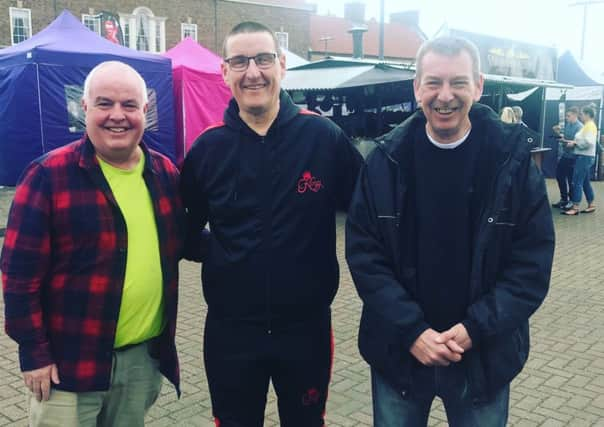Thriving Hartlepool Maritime Market a credit to organisers – Mike Hill, MP


It was a real pleasure to visit the new ‘Maritime Market’ at the Historic Quay; clearly an immediate success with plenty of folk turning up throughout the day.
It is a real credit to those who helped organise it and pushed for it to happen like Coun Dave Hunter.
Advertisement
Hide AdAdvertisement
Hide AdThe atmosphere was vibrant and there was all sorts of goods and food on offer. I can only see it growing from strength to strength, perhaps even combining with the Farmers’ Market.
It was colourful, welcoming and ambitious, just like the people of Hartlepool and I wish it every success. It was also good to see a stall there from Plastic Free Hartlepool.
The BBC’s Blue Planet series may have helped put the effects of plastics, especially micro plastics, on the marine environment and wildlife into the public psyche, but Plastic Free have been doing that since 2018 and for much longer than that as part of the Surfers Against Sewage movement.
They are a community group with well over 1,000 members who aim to put Hartlepool at the forefront of fighting the tide of plastic waste which, in their own words, ‘has become a very real problem facing our oceans and our planet in general’.
Advertisement
Hide AdAdvertisement
Hide AdThe group organise regular litter picks around the town; schedule regular beach cleans and engage in outreach and educational programmes.
Of course they are not the only people concerned about litter and the effects of plastic waste in particular, but they do take the initiative and show the way, and for that they must be commended.
Our marine environment is important to us as well as protecting our coast. That’s why when interviewed by CNN last Sunday about Free Ports I mentioned, amongst many concerns, the need to look at the environmental impact of things like deep dredging to allow access to our docks by larger vessels.
Free Ports are a concept coming out of discussions around Brexit and are popular in the United States, hence the CNN connection.
Advertisement
Hide AdAdvertisement
Hide AdThey were in Hartlepool and across the Tees Valley where interest is being expressed in the creation of a Free Port in the region and regenerate areas such as the old SSI site in Redcar.
In essence they are designated areas identified within a country which sit outside the tax and customs rules and regulations which would normally apply and so in theory would allow the import and export of goods without the costs and delays which would normally apply. The stated added attraction would be hundreds of new jobs, which are obviously much needed in places like Hartlepool.
The cautionary element is that although they are being hailed as an alternative to the Single Market and staying in the Customs Union they are nothing new and even exist in France and Germany despite arguments that EU law currently precludes them.
There are many questions around their potential to inadvertently allow tax avoidance by businesses, and also on workers rights and protections as Free Ports are often exempted from domestic regulations.
Obviously the generation of new jobs and improvements to the local economy are vital and important to me but not enough information has emerged yet and so I remain to be convinced.